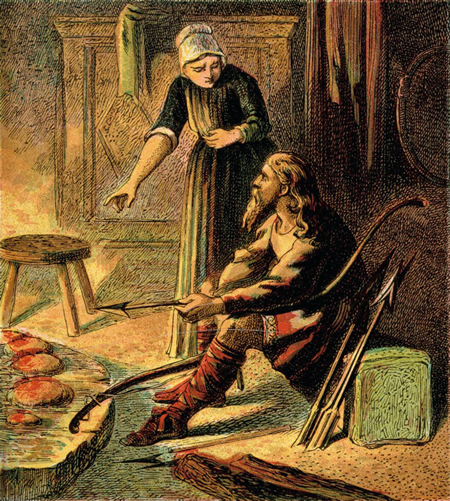
ANCIENT BRITAIN.
IN our last we called attention to a flourishing state of things in England, when schools were being established, churches erected, and civilization rapidly progressing; but this soon met with a severe check. Some bad kings came into power, who quarreled with each other. Some of these sought to expel the Christians. The king of East-Anglia resolved to serve Christ and the other gods together, so he had a pagan and a Christian altar constructed fronting one another in the same royal temple. While this state of things existed here, an outside foe was preparing to strike terror. The Scandinavians, by the aid of a series of great sovereigns, had established order in their kingdom. The bold spirits who would not submit were driven to the sea, and embraced a life of piracy and war. These Danes, as the “Northmen" were then called, came down the eastern coast of England. Crossing the river Humber, they soon conquered all north of the Thames. Britain again witnessed scenes similar to those when the Saxons and Angles came. Homesteads were burned, men were slaughtered, women and children were driven off into slavery, and Christian priests were slain beside their altars by the worshipers of Woden.
These heathens tied Edmund, the Christian king of East-Anglia, to a tree, and shot him to death with arrows.
This martyred king is the St. Sebastian of English legend.
To stop this slaughter there was raised up a king called Alfred. He was both handsome and brave. Even in his youth he had a great love for learning. After he was proclaimed king, he had more than fifty battles to fight in order to subdue the Danes.
When the people first selected him as their king, there was not one town where the people dared publicly proclaim him, for fear of the Danes. He disguised himself in poor clothes and went to live as a servant with a farmer in the Isle of Athelney, Somersetshire. The farmer did not know who he was. While there as a servant, his friends would come and tell him how the country was going on, and take messages from him to his friends.
They advised him to stay in obscurity until they could collect soldiers enough to fight the Danes in that neighborhood.
One day the good farmer's wife had made some cakes for supper and laid them before the fire to toast, requesting Alfred to watch them and turn them, so as not to let them burn. Alfred had just heard some news about the Danes, and was so absorbed in thinking how to deliver England from them, that he forgot the cakes, and they were burned quite black.
The farmer's wife scolded Alfred severely for his carelessness. Just then her husband came in with some of Alfred's friends who told him they had beaten the Danes in a battle and that the people wanted him, the king, to appear. The farmer's wife was now greatly agitated and surprised, and humbly asked Alfred's forgiveness for the scolding. He simply smiled, and said he forgave her for the scolding if she forgave him for burning the cakes. King Alfred's monument, at Athelney Station, is in sight of the railway from Taunton to Southampton, eight miles from Taunton. It is a pillar constructed of brick. It is said to be on the identical spot where King Alfred burned the cakes.
J. N. LOUGHBOROUGH.